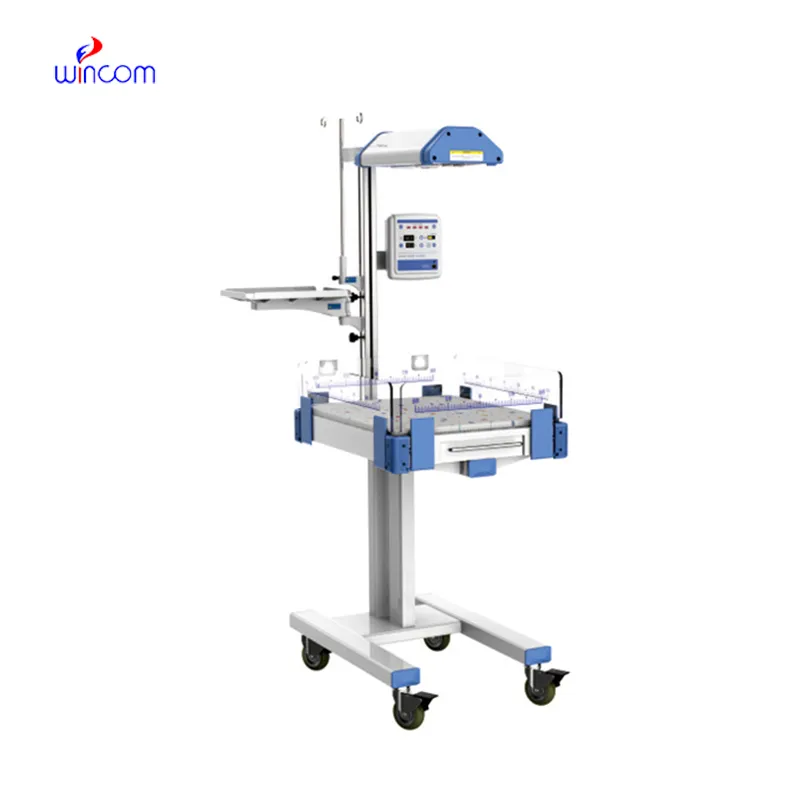
The claustrophobic mri machine takes advantage of the use of high-speed arrays of coils and gradient amplifiers to provide higher spatial resolution. The claustrophobic mri machine facilitates different diagnostic procedures such as brain mapping, musculoskeletal examinations, and vascular imaging. The claustrophobic mri machine offers smooth operation through automated calibration and intrinsic safety monitoring.

The claustrophobic mri machine is extensively utilized in neurological diagnostics for the diagnosis of brain tumor, stroke trauma, and multiple sclerosis. It provides accurate imaging of brain anatomy and blood perfusion patterns. The claustrophobic mri machine also supports functional imaging, measuring neural activity, and helps in understanding cognitive and behavioral disorders.

Tomorrow's claustrophobic mri machine will consist of advanced AI diagnostics that scan for abnormalities in real time. Wheel-equipped MRI units will soon be commonplace, bringing access to rural or emergency settings. The claustrophobic mri machine will play a key role in predictive medicine by reading changes in physiology before symptoms manifest.

Scheduled performance audits of the claustrophobic mri machine are critical to ensure image quality. Homogeneities of the magnetic field, radiofrequency calibration, and software releases need to be undertaken from time to time. The claustrophobic mri machine also need preventive maintenance to identify wear trends in cables and components at an early stage.
The claustrophobic mri machine enables doctors to examine internal anatomy with unimaginable accuracy and non-surgically. It guides soft tissue, nerves, and blood flow patterns with magnetic resonance. The claustrophobic mri machine is also used to diagnose internal injuries and track disease progression over a period of time.
Q: What should patients avoid before an MRI scan? A: Patients should avoid wearing metal objects, such as jewelry, watches, or hairpins, as these can interfere with the MRI machine's magnetic field. Q: How does MRI help in brain imaging? A: MRI provides detailed views of brain structures, helping detect conditions such as tumors, aneurysms, multiple sclerosis, and stroke-related damage. Q: Can MRI scans be performed on children? A: Yes, MRI is safe for children since it doesn’t use radiation. In some cases, mild sedation may be used to help young patients remain still during scanning. Q: What is functional MRI (fMRI)? A: Functional MRI measures brain activity by detecting changes in blood flow, allowing researchers and doctors to study brain function and neural connectivity. Q: How are MRI images interpreted? A: Radiologists analyze the images produced by the MRI machine to identify abnormalities, tissue differences, or structural changes that are relevant to the diagnosis.
The water bath performs consistently and maintains a stable temperature even during long experiments. It’s reliable and easy to operate.
The hospital bed is well-designed and very practical. Patients find it comfortable, and nurses appreciate how simple it is to operate.
To protect the privacy of our buyers, only public service email domains like Gmail, Yahoo, and MSN will be displayed. Additionally, only a limited portion of the inquiry content will be shown.
Hello, I’m interested in your water bath for laboratory applications. Can you confirm the temperat...
Hello, I’m interested in your centrifuge models for laboratory use. Could you please send me more ...
E-mail: [email protected]
Tel: +86-731-84176622
+86-731-84136655
Address: Rm.1507,Xinsancheng Plaza. No.58, Renmin Road(E),Changsha,Hunan,China